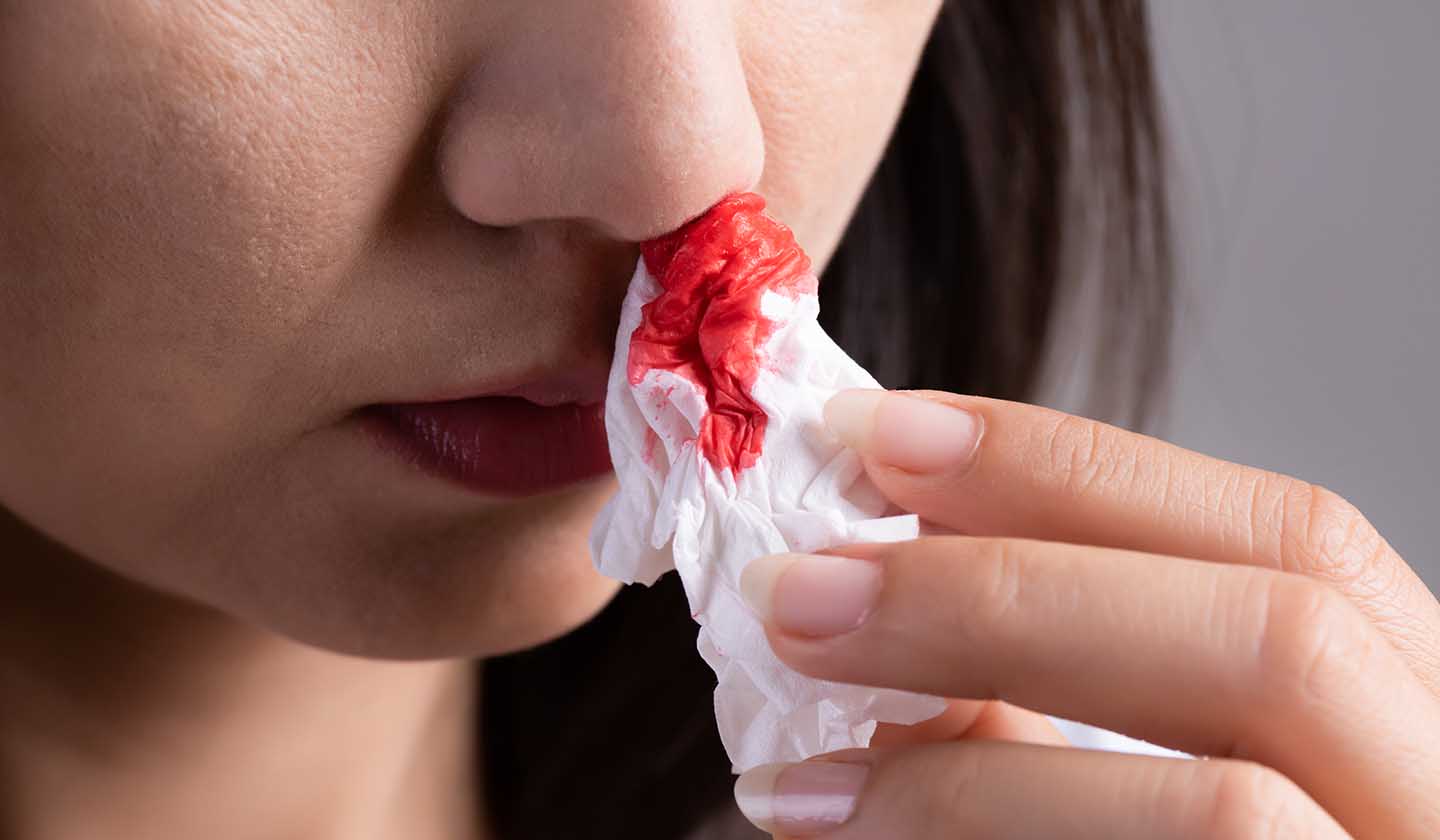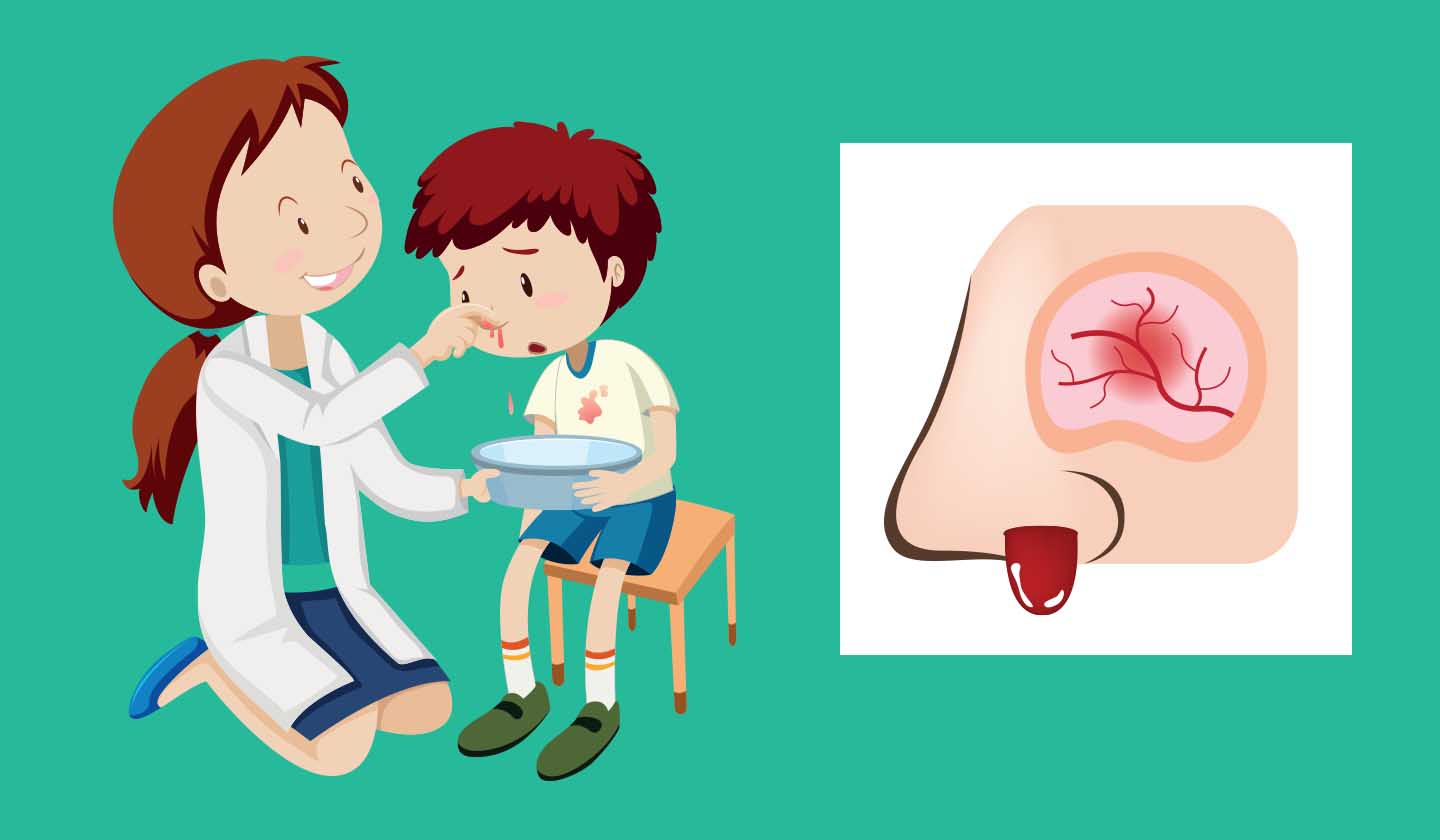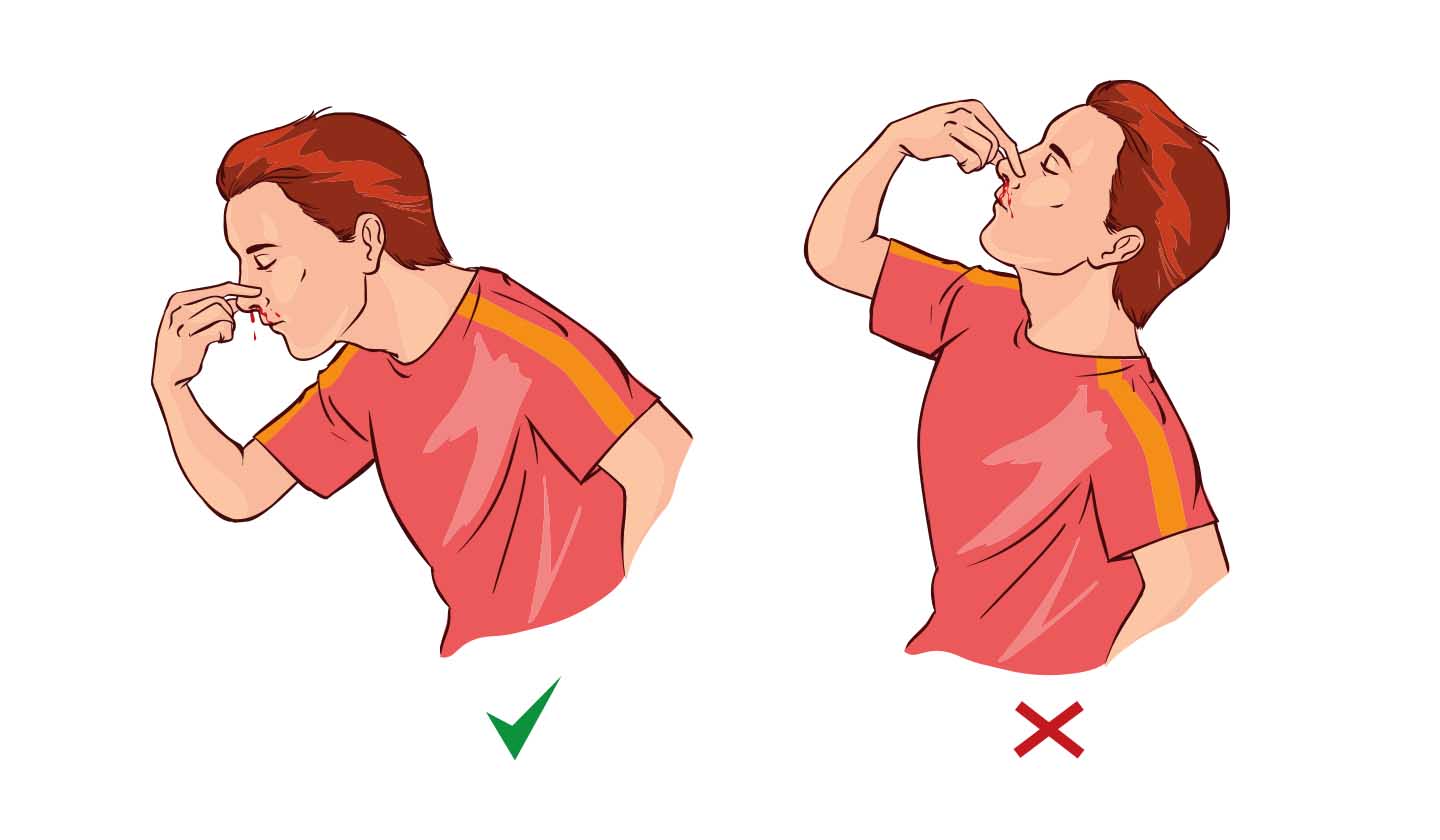Signs and symptoms
Epistaxis - Head forward and pinch nose

Epistaxis is the medical term used to define nosebleeds. These haemorrhages are due to the high number of blood vessels in the nose lining which can easily be damaged, causing bleeding.
Throughout life, there is an estimated prevalence of 60% and approximately 6% of the affected people seek medical treatment. It is more frequent up to the age of 10 and after the age of 50, and it affects both men and women.
In most cases, nosebleeds are not serious and stop after a few minutes.
Learn how to act in these situations.
Nosebleeds can be classified according to the bleeding location:
- anterior nosebleed - in 90% of cases the bleed originates from the anterior part of the nose;
- posterior nosebleed - less frequent and more severe, this type of epistaxis originates in the posterior part of the nose, involving larger calibre vessels.

Causes
In general, the most frequent causes for the occurrence of epistaxis are:
- Local trauma;
- Digital trauma (rhinotillexomania - habit of picking your nose);
- Dryness of nasal mucosa;
- Nasal foreign body - most common in young children;
- Perforation of the nasal septum (due to chronic use of corticosteroids or nasal decongestants, drugs such as cocaine or autoimmune diseases);
- Anticoagulants;
- Hypertension;
- Sinusitis, allergic rhinitis;
- Von Willebrand's disease (hereditary deficiency of a factor that affects platelets, altering clotting);

What to do with a nosebleed?
- Sit and keep your body in line with your head, leaning slightly forward (a quite common mistake is placing your head back);
- Blow your nose very carefully, to eliminate any blood clots;
- Pinch your nose wings (the soft part) with your thumb and forefinger, like tweezers, for 10 minutes. Breathe through your mouth;
- Then, stop pinching your nose and check if the bleeding has stopped. In most situations, the bleeding will stop, however, if the bleeding continues, repeat the procedure;
- The application of cold (compresses or ice) on the nose, can help control bleeding because it causes vasoconstriction of blood vessels;
- The application of nasal vasoconstrictor drops can also help stop the bleeding, as well as the use of nasal plugs (expandable sponges) and haemostatic ointments available on the market;
- Keep the nasal mucosa hydrated (there are gels for this purpose)
- Avoid blowing your nose after a bleeding, for approximately 24h, and avoid physical exercise.
If the haemorrhage is caused by the presence of a foreign object inside the nose, the recommendations are:
- Blow your nose gently;
- If the object is still stuck in the nose, try to remove it, using for example tweezers, being extremely careful not to push the object further into the nose;
- If you do not solve the situation after a few minutes, go to the hospital to have the object safely removed from your nose by a health professional.

Please note ...
Seek medical care if:
- the bleeding does not stop after 15-20 minutes;
- the bleeding is accompanied by headache and dizziness;
- nosebleeds are very frequent or very intense (in these situations the doctor may resort to cauterization of blood vessels).
Sources
iSaúde
Farmácia Distribuição Magazine
Também lhe poderá interessar
Respiratory system
Nasal congestion - Breathing is necessary
Respiratory system






